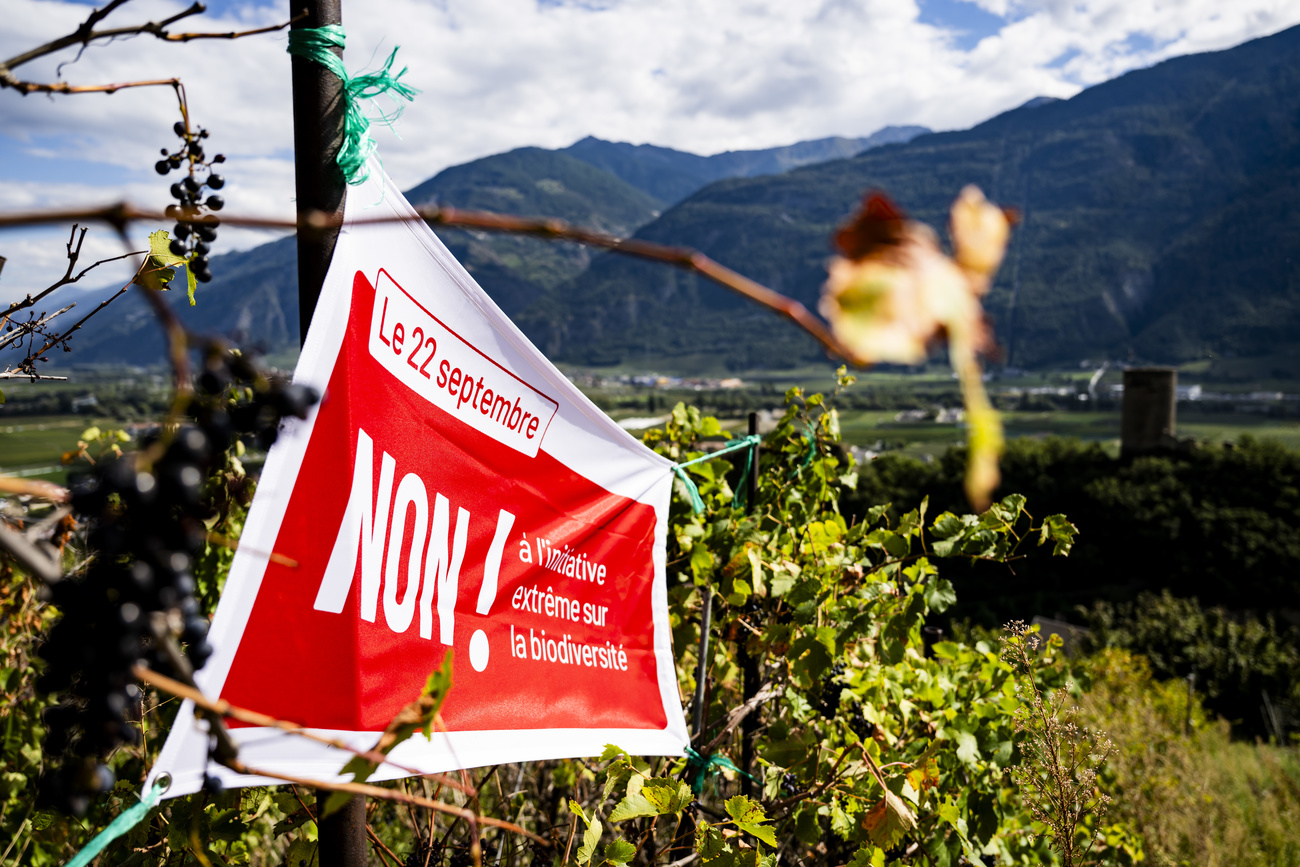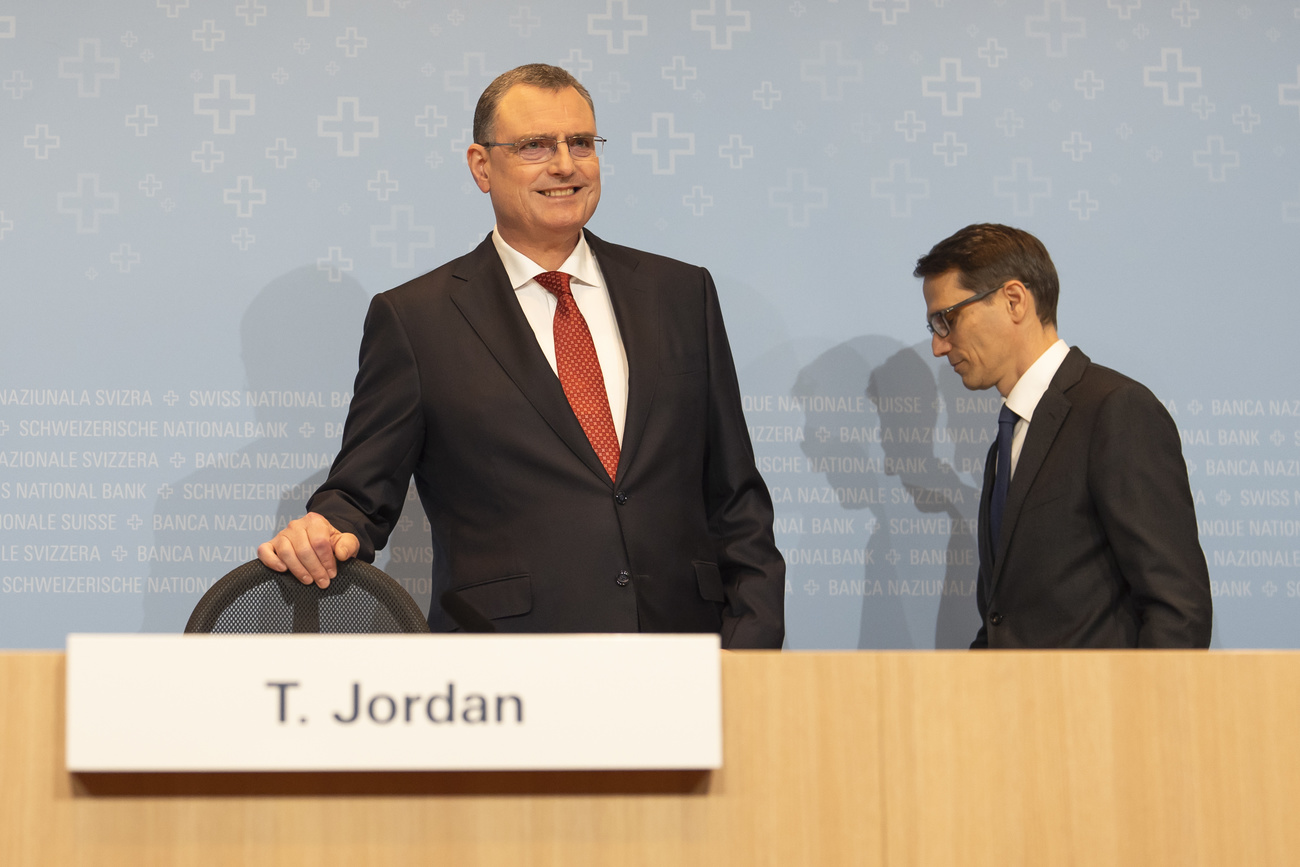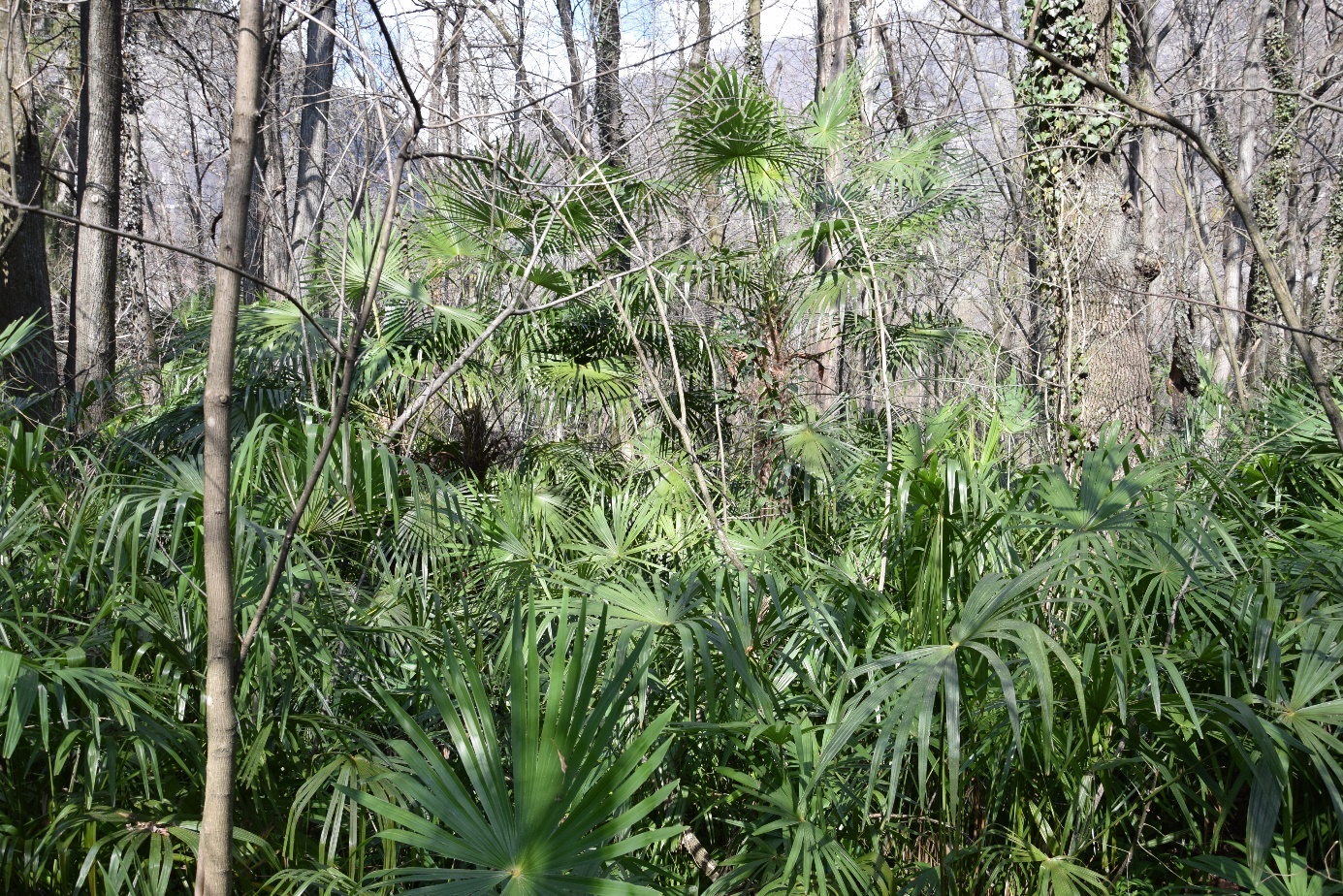

The Week in Switzerland
Dear Swiss Abroad,
the week began with defeat at the ballot box for the two topics up for vote on Sunday, and then moved on to the sensitive topic of assisted suicide.
And while the Swiss National Bank announced a lowering of the interest rate, bad news arrived in the form of higher premiums for compulsory health insurance for 2025.
Happy reading!

A beating. Or rather two. The texts put to the vote last Sunday were both soundly rejected by the Swiss people, who said ‘no’ to the biodiversity initiative and the pension reform.
Unclear, too complex, far removed from the concrete needs of the people. There were many reasons put forward by experts as to why the amendment to the Occupational Pensions Act was rejected by 67% of the Swiss electorate.
The problem of pensions for low wage earners and part-time workers remains, Interior Minister Elisabeth Baume-Schneider later recalled. In the future, the Federal Councillor envisages not a new big reform of the system, but many smaller, more concrete and comprehensible reforms.
The biodiversity initiative, which called for more land and financial resources to be dedicated to nature, also crashed at the ballot box. Although the problem of the disappearance of animal and plant species is a recognised problem, the Swiss people were not convinced by the solution proposed by the environmental associations that launched the initiative, which was opposed by the agricultural sector. If it was left to the Swiss diaspora, the text would have been accepted.
- Analysis and results can be found on SWI swissinfo.ch on the federal vote on September 22, 2024.

The ‘Sarco’ suicide capsule is back in the news in Switzerland, first with an official rejection, followed by a sensational first use on Swiss soil that led to several arrests.
On Monday, Health Minister Elisabeth Baume-Schneider declared that Sarco assisted suicide capsule did not comply with Swiss law. Less than a day later, it became known that in the canton of Schaffhausen a person had taken his own life using the device of the organisation ‘Last Resort’.
The cantonal police arrested several people, including the co-president of Last Resort and a journalist from a Dutch newspaper who was there to report on the first use of Sarco.
The inventors of the capsule, which causes the death of the person inside it by nitrogen hypoxia, claim that it is a method that guarantees death without suffering in about five minutes. To use Sarco, they point out, a psychiatric certificate confirming the person’s capacity for discernment is required. Otherwise, there is no medical intervention, which is compulsory in the context of assisted suicide practised by recognised organisations in Switzerland such as Exit.
The delicate debate on the end of life is far from over in Switzerland.
- The article on the first use of Sarco and SWI swissinfo’s report from the Last Resort press conference in July.
- SWI swissinfo.ch’s special coverage on assisted suicide.

Currently, married couples in Switzerland pay taxes jointly, which puts them at a tax disadvantage compared to unmarried couples. A government bill to eliminate this difference in treatment was approved by the House of Representatives on Wednesday.
It is a situation of discrimination of married couples that does not please part of the political spectrum, in particular the women of the Radical Liberal Party. The latter have launched an initiative to introduce individual taxation also for married couples.
According to the government, a constitutional amendment (which would have to be made if the initiative is successful) is not necessary to change this. It has therefore presented an indirect counter-proposal providing for individual taxation for all.
A slight majority in the House of Representatives (98 to 93 with one abstention) approved the government’s idea. The object will now also have to be discussed by the Senate. At the level of the public coffers, the changeover to the new system will result in lower revenues of around CHF1 billion, of which CHF800 million will be borne by the federal government and CHF200 million by the cantons, writes RSI.
- The counterproposal on taxes in RSIExternal link
- A guide to Swiss taxes.

The expected move by the Swiss National Bank (SNB) occurred as anticipated. The SNB eased its monetary policy by lowering the key interest rate by 0.25 points to 1%.
The decrease is in line with expectations, although analysts did not rule out an even larger cut. The decision was taken to counter upward pressure on the Swiss franc. The strong franc helped during the period of rampant inflation, allowing prices of goods from abroad to ease. Now, however, as inflation falls, the difficulties of the export industry, for example, faced with the challenge of a low euro, emerge.
SNB Governing Board Chairman Thomas Jordan, who will leave office at the end of the month, also stated that ‘further interest rate cuts may be necessary in the coming quarters to ensure price stability in the medium term’.
- A report on the SNB move in RSIExternal link

Bad news for Swiss household budgets. The Federal Office of Public Health (FOPH) announced on Thursday yet another increase in the cost of compulsory health insurance, one of the expenses that already weighs most heavily on the budgets of Swiss households.
“The blow has landed,” says RSI in its headline with reference to the expected 6% increase in health insurance premium costs. However, this is the national average, which includes all cantons. The slight increase in Basel-City (+1.5%) is meagre consolation for those living in Ticino (one of the cantons where premiums are already among the most expensive), which will see costs rise by 10.5%.
The FOPH has not given any reassurance for the population’s pockets in the years to come either. Due to the ageing population and the advent of new treatments and drugs, healthcare costs will most likely continue to rise.
- More details in article on RSIExternal link
Swiss oddities
Ask a Swiss-German to imagine a postcard from Ticino and chances are there will be a palm tree on it. And not just any palm tree, a Trachycarpus fortunei (Fortune palm or hemp palm).
Although it has now become a symbol exploited to the hilt by tourism operators in Ticino, it is also an invasive plant that creates quite a few problems for local species. For this reason, the federal authorities have just banned its sale.
But the ban that was supposed to only concern female plants has now been extended to all “Ticino palms”. The reason is its atypical reproduction.

More
The Ticino palm falls victim to its atypical reproduction
Photo of the Week

After the end of one vote, people are already thinking about the next one. The committee for the ‘yes’ vote on the planned expansion of the Swiss motorway network is already warming up for the campaign ahead of the vote on November 24. The photo was taken in the parliament press room on September 24.
The Week Ahead

With the end of the autumn parliamentary session, next week’s Swiss news will probably contain a little less politics.
There will certainly be extensive talk about CERN in Geneva, which tomorrow officially celebrates its 70th anniversary. The laboratory for particle physics research, despite its age, still dreams of new discoveries, with plans to build a gigantic new particle accelerator.
Banking and legal worlds will intersect on Tuesday when the appeal trial in the money laundering case known as the ‘Bulgarian connection’ opens in the Federal Criminal Court. Also in the dock will be Credit Suisse, now acquired by UBS.
Finally, the Zurich Film Festival kicks off this week. It would appear that the event has fulfilled its promise to bring a film star a day to Zurich. To name a few: Kate Winslet, Jude Law, Pamela Anderson and Richard Gere.

In compliance with the JTI standards
More: SWI swissinfo.ch certified by the Journalism Trust Initiative






























